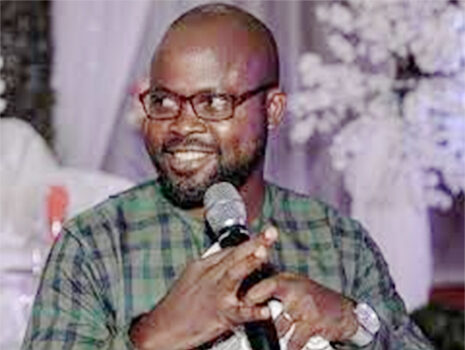To educate a person in the mind but not in morals is to educate a menace to society – Theodore Roosevelt (1858-1919), 26th President of the United States
It is a practical departure from the ancient landmark of promoting social security and knowledge-based welfare among the people of Africa as it is most dependent on liberty through education. The design and development of the curriculum seem to suffer serious deployment setbacks from some academic pedestrians due to pecuniary practices and a lack of understanding of the future nemesis. The amalgamation of some sorts in the area of preparing the blueprint that could match the present national needs of the economy is sparsely illustrated in the scope of building future leaders.
Most obviously, the solution to the present predicament of unemployment is not well addressed in the recently made available National Policy Design for Education. It almost appears that the matching scheme is addressing the past in the present day. Additives of this special book for promoting sound and efficient architecture of the school system are being introduced at almost the end of the package. Just like adding salts to an already prepared meal, the savor may not be enough or maybe too much. Scholars have eluded the temptation of putting so much emphasis on cognitive dissonance and by preparing a master plan that addresses a few of the present economic needs the whole process is seriously in disarray.
The rights of every common citizen will be to have a choice of a fair playground for their lives towards the future without the tough touch of government in the education plans. The fairness will be found in the availability of resources to cater to the exact state of things while you apply for that course of study. The system will promote adequate access to materials that will enable the poor among the people to benefit from the already existing well of wealth as designed by experts. These are very strange to the present generation and may not abate anytime soon.
What approach will be global for an inclusive society like ours? The attempt has not been as productive as the efforts made by the stakeholders. The efforts have been largely focused on researching the common ground for all learners as well as meeting the needs of the immediate challenges. However, times have changed to prove this approach to be futile. The universal design learning approach has evolved to promote learning through inclusion regardless of gender identity. The essence of this approach has been to support the helpless while learning will not be prejudiced on capabilities but rather on abilities with incapacity in the framework.
Learning challenges have caused so much neglect with government policies on education. Meanwhile, some individuals and non-governmental organizations have supported addressing this challenge though with limited resources. Facilities that are not sufficient to bring all learners on board to promote the development of new ideas. The traditional methods are still invading the system, ravaging the entire essence of innovation. The methods may not be as faulty as the process it takes for this learner to understand the new technology.
If as service providers, teachers are seriously engaged in the development of a curriculum for the century of technology, many of the styles of learning may be extinct. The product innovation will be dependently on the quality of our education to provide solutions as a result of the services offered at the elementary stage of these learners to compete with others in the present generation. Technology should be seen as a means or tool to improve learning activities without the present religious status of any student.
The skills required are not the same as they were in the past. The evolution is making the products of our stake in the curriculum to be as irrelevant as the current system. The assumption is that students are too lazy to learn, meanwhile, the language is not similar to what they can quickly adapt to. Digital skills are not as prevalent in the curriculum as the demands are highly requested in our present world. We have a case of teaching a new world an old skill while we expect innovation. The outcome will always be worrisome if the process is not highly reviewed.
It is imperative to leverage on technology for the future to compete with the world. An intra-curriculum revolution may be more effective than the traditional curriculum design. It will be an approach that empowers the crucial elements of learning at a level closer to the demands of society. A cultural perspective of developing a blueprint of learning will help correct the nuances as projected within the framework of the teaching process. If a society needs bricklaying to survive the present condition of development, the school design should address this with serious consideration for the future and wouldn’t make a permanent suggestion of this scheme unless where required.
Policy making would thrive more with the students at the core stage of designing the plan. Due to exigencies surrounding the transition from one government system to another, the instability of these processes will adversely affect the lifespan of learning concerning sustainability and relevance. An efficient approach will employ self-sustaining processes that will enable students to predict the next phase of development in this documentation. If the methodology would be student-centered, the outcome would also be society-compliant.
Olusegun Fashakin, a Fulbright Teaching Excellence and Achievement Fellow, writes in via olusegunfashakin@gmail.com



